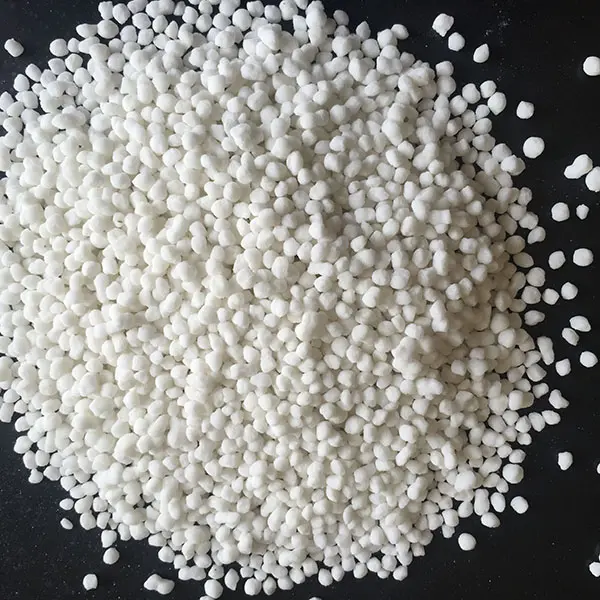Introduce
With the growing demand for sustainable agricultural practices, the use of ammonium sulfate as an important fertilizer has attracted considerable attention. As the world’s population grows steadily, ensuring high crop yields while minimizing environmental impact has become a top priority. In this blog, we delve into the importance of ammonium sulfate in modern agriculture, discussing its benefits, applications and potential challenges.
The role of ammonium sulfate in agriculture
Ammonium sulfate is a nitrogen-based fertilizer consisting of ammonium ions (NH4+) and sulfate ions (SO4²-). Its main function is to provide plants with essential nutrients, stimulate robust growth and increase overall crop productivity. Nitrogen is an essential element needed to form proteins, amino acids and chlorophyll, which are essential building blocks for plant growth and development.
By incorporating ammonium sulfate into the soil, farmers can effectively replenish nitrogen levels needed for crop health. Not only does this fertilizer promote leaf health, it also promotes root development, significantly improving the plant’s ability to absorb water and nutrients from the soil.
Benefits of Ammonium Sulfate
1. Nitrogen source: Ammonium sulfate provides plants with an easily accessible nitrogen source. Its high nitrogen content supports rapid growth and strong stem development, making it especially effective on crops that require immediate growth, such as leafy greens and grains.
2. pH adjustment: Ammonium sulfate is acidic, making it an ideal amendment for high pH soils. By reducing soil alkalinity, it allows plants to better absorb nutrients and improves overall soil quality.
3. Sulfur content: In addition to nitrogen, ammonium sulfate is also a valuable source of sulfur. Sulfur is essential for the synthesis of proteins, enzymes and vitamins in plants, and can enhance the plant’s resistance to disease and stress.
4. Environmental protection: Compared with nitrogen fertilizers such as urea and ammonium nitrate, ammonium sulfate has a lower risk of nitrogen leaching, which minimizes environmental pollution. Its lower water solubility ensures a more controlled release of nitrogen into the soil, reducing the potential for runoff and contamination of nearby water bodies.
Challenges and Considerations
While ammonium sulfate has significant benefits, it is also important to use it judiciously to avoid any adverse effects. Overapplication of this fertilizer can lead to acidification of the soil, which can inhibit plant growth. In addition, the cost of ammonium sulfate can be higher than other nitrogen fertilizers, so it is necessary for farmers to carefully evaluate its economic viability for specific crops.
In conclusion
The use of ammonium sulfate in modern agriculture plays a key role in achieving sustainable and efficient farming practices. Its nitrogen and sulfur content, ability to adjust soil pH, and environmental friendliness make it a valuable asset to farmers worldwide. By responsibly incorporating ammonium sulfate into agricultural practices, we can strike a balance between high crop yields and environmental stewardship, ensuring a brighter, more sustainable future for our food system.
Post time: Jul-10-2023

